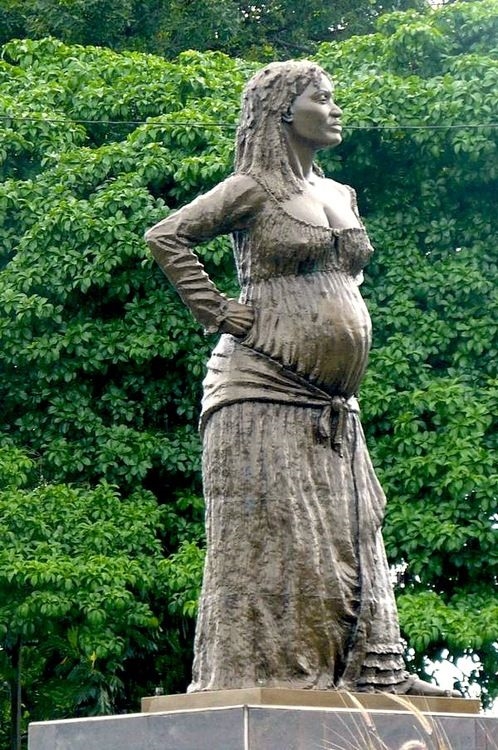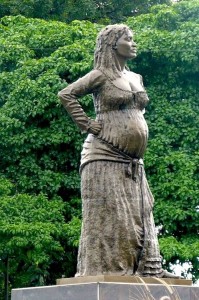
GOOD MORNING, P.O.U.!
This week will take a look at the leaders of the slave rebellions.
La Mulâtresse Solitude

(From HerStory)
There is very few information available about “the Mulatto Solitude”, but because she fought against French troops while she was pregnant her story is often described in mythical terms and is still considered as a symbol of resistance to slavery in Guadeloupe.
Her name refers to her origin: her father was a sailor who raped a slave on a boat leading her from Africa to the island of Guadeloupe, a French colony in the Caribbeans. This woman was Solitude’s mother, who gave birth to Solitude on a plantation in 1772.
In 1794 the slavery was abolished in the French colonies as a result of the Haitian slave revolt. The abolition of slavery was an attempt of the French government to avoid a generalized slave revolts in all its colonies. It is probably in these years that she joined a maroon community on the island, living away from the cities.
In 1802 Napoleon Bonaparte restored slavery in the French colonies and sent troops to Guadeloupe to enforce that decree. Solitude joined a group of people protesting against it and led by men such as Delagrès, Ignace, Paleme and Jacquet. They organized as a small army and fought all against the French troops led by the general Richepanse. They were defeated in Baimbridge (Grande Terre) and most of this army was captured and killed during the assault on Matouba (Basse Terre) that took place between the 27th and 29th of may 1802. Solitude escaped this slaughter but was captured soon after in the woods of Basse Terre.
She was sentenced to death, but because she was pregnant, they kept her alive until the childbirth. While the child was given to be a slave, she was executed the following day, on November 19th, and it is said that “live free or die” was her last words.
A statue honouring Solitude was erected in 1999 in the commune called les Abymes (Guadeloupe).
